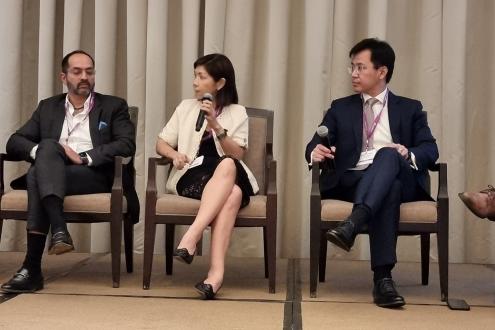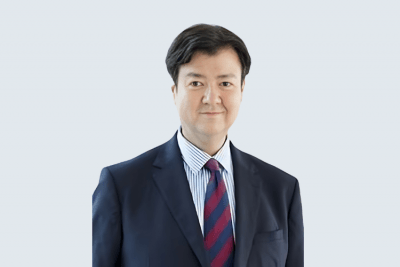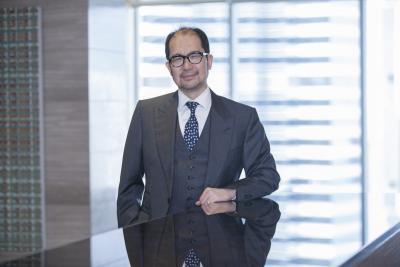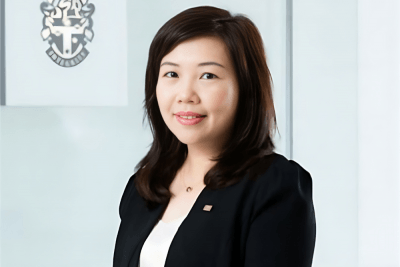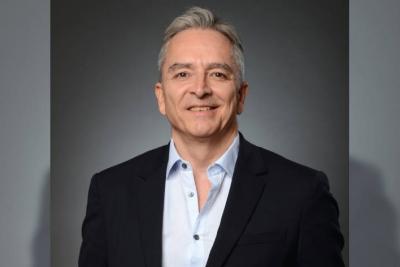Wealth Solutions & Wealth Planning
Family Offices and the New Dawn for UHNW Wealth Management in Asia
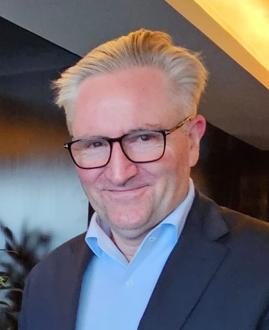
Jul 10, 2023
The Hubbis Wealth Solutions Forum in Singapore on June 14 saw a host of experts offer their views on how the wealth management industry in Asia can help wealthy clients enhance their planning and structuring. The third panel discussion of the day saw a hand-picked selection of experts discuss the importance of family offices for managing UHNW wealth, and look at the family office and discuss ways in which they should be structured to optimise their value and flexibility for principals and their future generations. This is a summary of some of their key observations and words of advice.
Chair: Michael Stanhope, CEO, Hubbis
Panel Members
Lee Wong
Head of Family Services, Asia
Lombard Odier
Tommy Leung
Co-Head Global Family and Institutional Wealth, APAC
UBS Global Wealth Management
Alexandra Geiger
Foreign Counsel (Registered Foreign Lawyer)
Rajah & Tann
Rohit Ganguli
Head of Wealth Planning Asia
EFG Bank
Bryan Henning
SVP, Head of International
Eton Solutions
Family offices in Singapore – the structures, advantages and challenges ahead for families
Whatever shape or form the family office might take, and whether designed to hold and act as the hub for family businesses, properties or financial assets, Singapore offers some major advantages, according to the experts on the pane.
A panellist highlighted the security and rule of law, the high-quality lifestyle and services environment (travel, healthcare, education and others) and the deep ecosystem of financial, fiduciary and professional services.
He said an estimated USD15 trillion of assets will be transitioning between generations in the decade or two ahead, and some 60% of that would be external to the US. He said very wealthy families look increasingly to establish themselves and their families and wealth in multiple jurisdictions, of which Singapore should certainly be high on the list.
Moreover, for those seeking alternative residency, Singapore’s passport is at the top of the list for visa-free global travel, along with Japan. He said people are becoming more sophisticated and to live and manage wealth across multiple jurisdictions and work with ecosystem partners across different centres as well.
But families must consider precisely what they want to achieve and how to meet the objectives
An expert observed that great wealth can be onerous to manage, albeit a good problem to have! He said people can tend to commoditise the benefits the family office brings without actually having the discussions as to whether they really need the family office in the first place.
He explained there are some quantifiable benefits, for example, setting up a family office in Singapore, such as immigration benefits, tax/fiscal incentives, lifestyle advantages, and that other jurisdictions might have other rewards, but those should not outweigh a detailed analysis of the missions and the needs.
“Before we jump the gun and get into the AUM needed, and the structure and staffing and so forth, the discussion needs to be more holistic as the advantages also come with a lot of investment in terms of the cost, resources, time and effort,” he commented.
He added that the AUM required for a family office is also a function of that discussion. “It might make more sense for a family with USD100 million in AUM than a family with a billion dollars,” he said.
A family office should in its best manifestation be a reflection of the family, their objectives and their values
A panellist observed how it is vital to work with the families from a wide-angle perspective, to understand their objective, their values and their chemistry amongst the different generations. She said this type of holistic view is a pre-requisite for the right legal and structuring approaches and helps to ensure that the right governance and protocols are also established early on.
He also said that the mission from the outset should be to ensure that wealth, as well as family governance and values, extend into the younger generations but noted that in too many cases – perhaps half in her experience – families embarking on the family office journeys do not even have proper estate and legacy planning in place, or even under consideration.
Whatever you decide in terms of missions, you also need to think properly about operational costs and efficiencies
Another expert said that while families will pay for good advice around key areas such as trusts, foundations, the Variable Capital Company (VCC), family structures and succession planning, as well as residency advice, because they know these are all complex, and that they need to get these areas nailed down properly, they pay insufficient attention and commit not enough time and money to the administrative sides of the new operations.
“They too often fail to really work out operational efficiencies, how to overcome compliance challenges, issues around processes and reporting and so forth,” he explained.
“They might buy some kind of cheap and cheerful platform that can do basic accounting and then flood their family office junior staff with manual integrations of eight client statements from eight different banks, and it is incredibly inefficient and cumbersome,” he then cautioned. “There is the dawning of a new realisation that family offices must be managed with great efficiency and smart investment in technologies and processes to deliver the value.”
Singapore is pushing the education and training agendas to help the family office ecosystem evolve
Another guest highlighted the vital need for education and training, not only of the family office staff but of the families and the younger generations. She noted that the MAS and the government wanted to encourage these positive developments, benefitting the principals and staff but also contributing to a more professional wealth management landscape.
Attracting the right talent is always an issue, and it is not only about remuneration
Another panellist picked up on this line of thought, noting that there is enough talent in Singapore, but there is often a gap between the type of people a family office thinks they need and the remuneration they are prepared to offer for the requisite expertise. She noted that they also tend to hire too few people and then expect them to be able to cover all the bases, to essentially be Superman or Superwoman. “Those people do exist but are in very senior positions, and it is very difficult to pay them enough to attract them to a smaller operation,” she said. “There remains a mismatch in terms of cultural fit, quality and the remuneration and prospects on offer.”
Cost is one thing, value is an entirely different matter
That led the panel to comment on the costs of setting up and living in Singapore compared to the obvious advantages. The reality is there are cheaper places, but they offer far less, he explained.
“Switzerland, Singapore, Hong Kong, even Dubai, none of them are low cost and all will become more expensive, but they offer access to excellence in all areas, whether it is the restaurants, or healthcare, or education, or logistics, or security,” he said. “It all comes down to value. You have to pay up for value, and it does not come cheap. Don’t be one of those who know the price of everything and the value of nothing.”
Singapore as a natural hub for great wealth and a platform in the future for sustainability and philanthropy
Another guest observed that Singapore is a magnet for wealth and business families and a remarkable hub for networking and communication. He said it should not be about the cost for these families, it should be about the benefits of locating the family office and wealth management in Singapore and all the additional advantages.
“Ten years from now, instead of having 1000 family offices, probably the number would easily double if not more,” he predicted. “Singapore is a centre of excellence and will become even more so in the decade ahead. And the inflows will come from everywhere, not just from Greater China and Southeast Asia, as wealth arrives from the US, the Middle East and other regions.”
The final word went to an expert who also highlighted the rise of Singapore as a centre for sustainability, foundations and for philanthropy. “Singapore has an ambition at the government and regulatory levels to be a hub for directing private capital to these positive causes,” she said. “I am cautiously optimistic that the area of sustainability and philanthropy will see more and more family offices driving private capital in these directions over the coming decade.

Founder & Chief Executive Officer at Hubbis

More from Michael Stanhope, Hubbis
Strategy & Practice Management
A Call to Arms: Wealth Managers in Asia Must Adapt Now to a Brave New World
Latest Articles


